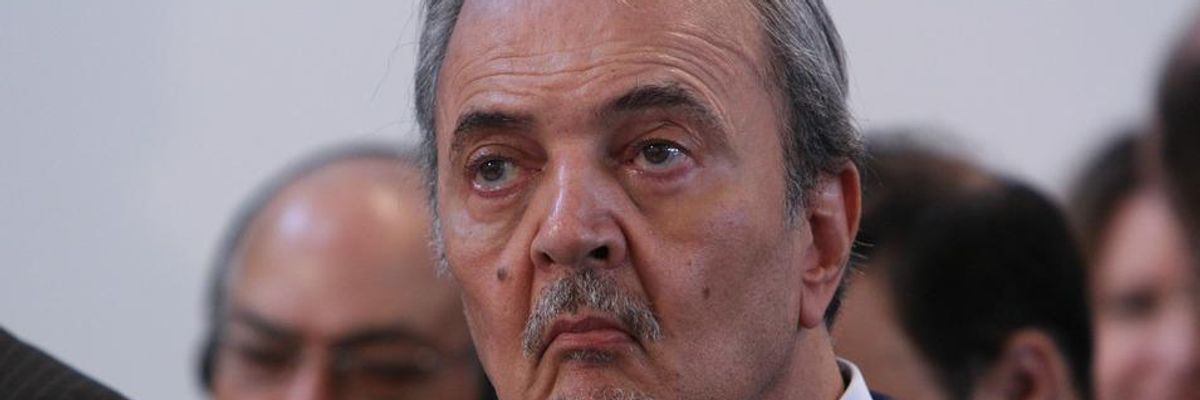Saudi Arabia has rebuffed Iranian calls to end its bombing assault on Yemen, instead accusing Tehran of regional meddling and in turn leading experts to warn of deepening tensions between the two countries.
According to NBC News:
Saudi Arabia dismissed Iranian calls to end air strikes on neighboring Yemen on Sunday as Saudi-led attacks hit a military camp in the Yemeni city of Taiz, killing eight civilians according to a medical source.
"How can Iran call for us to stop the fighting in Yemen?" Saudi Foreign Minister Saud al-Faisal said in the Saudi capital Riyadh at a news conference with his French counterpart Laurent Fabius. "We came to Yemen to help the legitimate authority, and Iran is not in charge of Yemen."
Iran's Supreme Leader Ayatollah Ali Khamenei said on Thursday that the air strikes were a "crime and genocide" and Iran's president Hassan Rouhani called for a ceasefire and dialogue among Yemen's factions.
Iranian Foreign Minister Mohammad Javad Zarif went even further on Monday, urging the formation of a new Yemeni government and offering to assist in a political transition, Reuters reports.
"I had the privilege of participating in the Bonn Conference when we created the Afghan government," Zarif reportedly said in a speech during a two-day visit to Kazakhstan. "Actually we didn't do it, the Afghans did ... We can do that in Yemen too."
But as Reuters further notes, "Zarif's suggestion of a similar process for Yemen is likely to be seen by Saudi Arabia as an attempt to extend Iran's influence on the Arabian Peninsula."
However, the Saudi assertion--widely shared by Western governments and mainstream media--that Iran is seeking to wield that influence through Houthi fighters is flawed, Adil E. Shamoo wrote last week at Foreign Policy in Focus:
Media reports have largely echoed the charge that the Houthis are Iranian proxies. Yet this misleading cliche serves no other interest than to demonize Iran.
Though it's likely that Tehran is helping the Houthis in some capacity, scholars on Yemen have been unable to gather much credible evidence of Iran's military involvement. Even Katherine Zimmerman, a policy wonk at the right-wing American Enterprise Institute, told Foreign Policy there was "nothing that's seen as hard evidence" to indicate Iranian involvement.
More likely, the driving forces of the rebellion are local, as a Chatham House report by Peter Salisbury recently indicated, concluding that the influence of external forces is exaggerated. "The Houthi are not Iranian proxies in the sense that Hezbollah is an Iranian proxy," adds British foreign secretary Philip Hammond. Even if Iran is supplying help, Tehran "can't actually control what the Houthis do."
